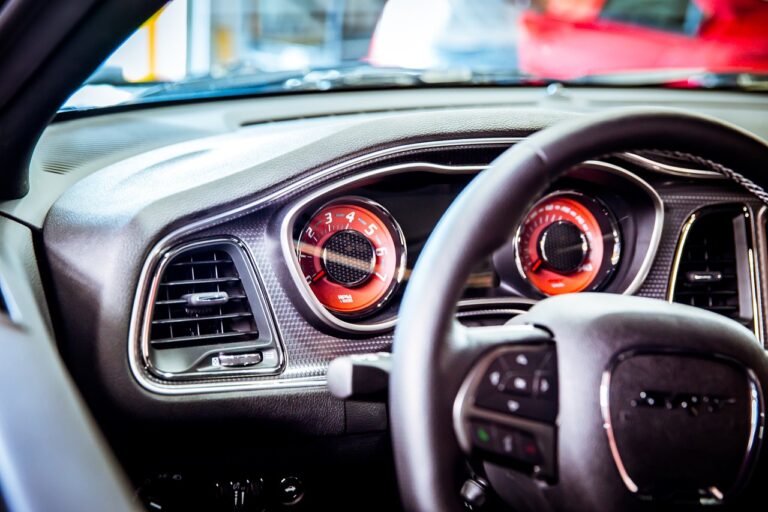The Influence of Smart Fabrics and Textiles in Car Interiors
Smart fabrics and textiles are revolutionizing the way car interiors are designed and experienced. With advancements in technology, these innovative materials are not only enhancing the aesthetic appeal of vehicles but also providing functional benefits that cater to the needs of modern consumers. From self-cleaning fabrics to temperature-regulating textiles, the integration of smart materials in car interiors is elevating comfort and luxury to a whole new level.
The use of smart fabrics and textiles in car interiors is reshaping the automotive industry by offering customizable solutions that cater to individual preferences and lifestyle choices. Whether it’s integrating sensors for monitoring vital signs or incorporating interactive displays into the upholstery, these materials are transforming cars into personalized and connected spaces that prioritize the well-being and convenience of passengers. As automakers continue to explore the possibilities of smart fabrics, the future of car interiors is bound to be defined by innovation, sophistication, and unparalleled comfort.
Smart fabrics and textiles are revolutionizing car interiors
Advancements in technology enhancing both aesthetic appeal and functionality
Self-cleaning fabrics and temperature-regulating textiles are just the beginning
The integration of smart materials in car interiors is not only about luxury but also about practicality. These innovative fabrics can offer features such as stain resistance, moisture-wicking properties, and even antimicrobial treatments to ensure a clean and hygienic environment inside the vehicle. Additionally, smart textiles can be designed to be durable and long-lasting, making them ideal for high-traffic areas like car seats and door panels.
As consumers become more conscious of sustainability and eco-friendliness, smart fabrics play a crucial role in reducing the environmental impact of automotive design. By using recycled materials or incorporating energy-efficient technologies into their production processes, automakers can create car interiors that are not only stylish but also environmentally responsible. This shift towards sustainable practices is reshaping the way cars are built and perceived by consumers who prioritize ethical choices in their purchasing decisions.
In conclusion, smart fabrics and textiles have emerged as a game-changer in automotive design by offering endless possibilities for customization, comfort, and sustainability. As the demand for connected vehicles continues to rise, these innovative materials will play an increasingly important role in shaping the future of car interiors. With ongoing research and development efforts focused on pushing the boundaries of what is possible with smart fabrics, we can expect to see even more exciting innovations that redefine the driving experience for years to come.
The Evolution of Fabrics and Textiles in Car Interiors
Fabrics and textiles in car interiors have come a long way from basic materials to high-tech innovations. In the early days of automobile manufacturing, interiors were predominantly adorned with simple fabrics like cotton and wool. These materials lacked the durability and advanced features that are now expected in modern vehicles.
As technology advanced, so did the fabrics used in car interiors. Manufacturers started incorporating synthetic materials like nylon and polyester to improve durability and performance. The evolution of fabrics and textiles in car interiors has been driven by the need to enhance both the aesthetics and functionality of vehicle interiors.
Enhanced Comfort and Luxury with Smart Fabrics in Cars
Smart fabrics have revolutionized the automotive industry by offering enhanced comfort and luxury in car interiors. These innovative materials are designed to provide a more enjoyable and convenient driving experience for passengers. From temperature-regulating fabrics to self-cleaning textiles, smart fabrics are transforming the way we perceive car interiors.
In addition to their functionality, smart fabrics also add a touch of sophistication and elegance to car interiors. The use of high-quality materials and advanced technology not only enhances the visual appeal of the vehicle but also elevates the overall driving experience. With a focus on both comfort and luxury, smart fabrics are setting a new standard in automotive design, promising a more luxurious and pleasurable ride for all passengers.
What are smart fabrics and textiles in car interiors?
Smart fabrics and textiles in car interiors are materials that have been designed to enhance the comfort, luxury, and functionality of the car’s interior. These fabrics can include features like temperature regulation, moisture-wicking properties, and even embedded sensors for monitoring the driver and passenger’s vital signs.
How have fabrics and textiles in car interiors evolved over time?
Fabrics and textiles in car interiors have evolved from basic materials like cloth and leather to advanced smart fabrics that offer a wide range of benefits. These advancements have transformed the driving experience, providing enhanced comfort and luxury for passengers.
What benefits do smart fabrics in car interiors provide?
Smart fabrics in car interiors provide benefits such as improved comfort, better temperature regulation, and enhanced durability. These fabrics can also add a touch of luxury to the interior design of the car, creating a more enjoyable driving experience for passengers.
Are smart fabrics in car interiors expensive?
While smart fabrics in car interiors may come at a higher price point than traditional materials, the benefits they provide in terms of comfort, luxury, and functionality can outweigh the cost. In the long run, investing in smart fabrics for your car’s interior can enhance your overall driving experience.







